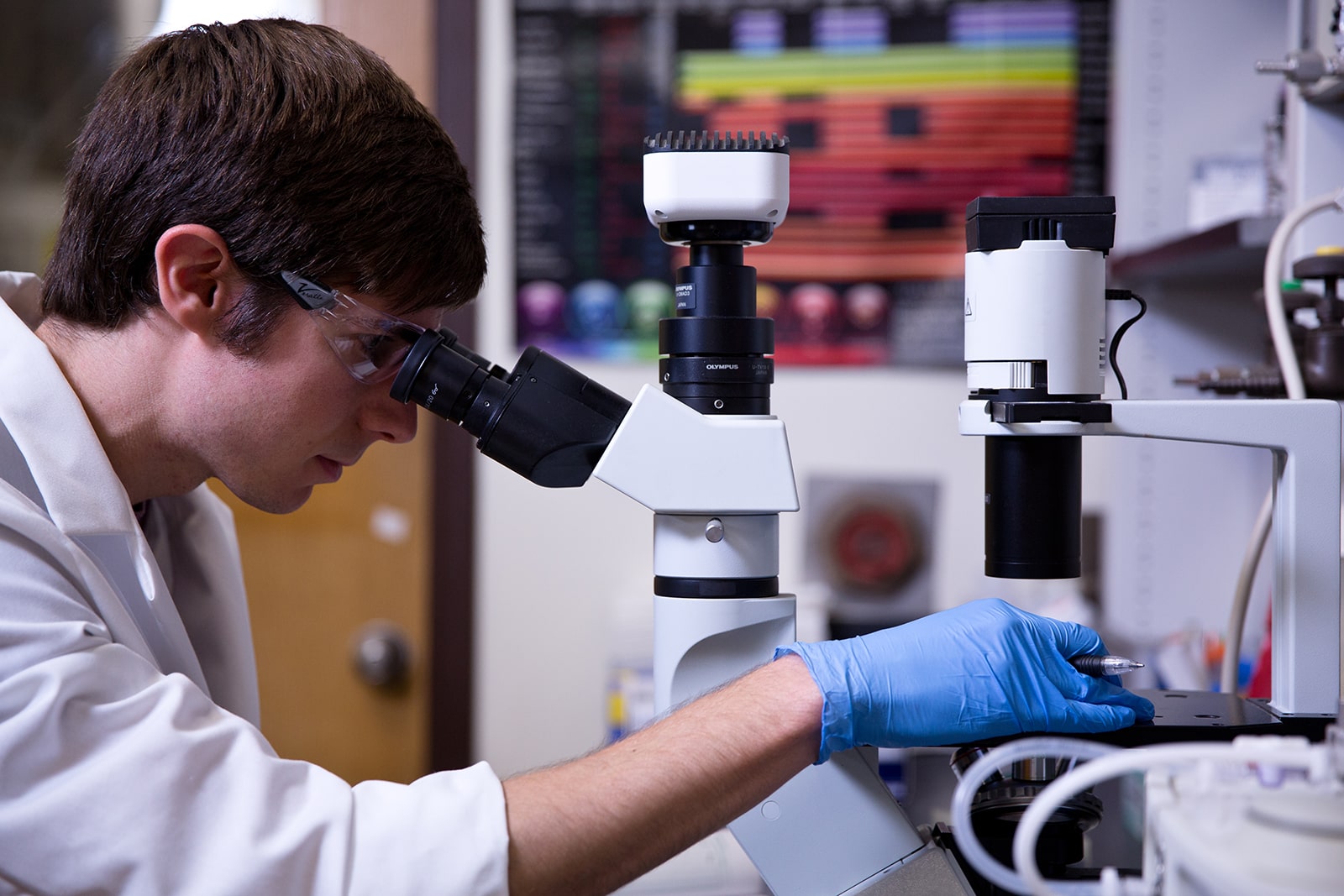Biomedical Engineering

In biomedical engineering, students work alongside faculty to build interdisciplinary knowledge and develop clinically translatable solutions for human health — from the design and development of artificial organs and devices for injury recovery to the creation of advanced detection systems and refined medical imaging techniques and equipment. Texas Engineering students have gone on to work in academic institutions and various areas of the health care and biotechnology industries.
Programs offered:
What do biomedical engineers do?
Imagine hospitals operating without X-rays, ultra-sound equipment, EKGs and other high-tech procedures and devices that diagnose conditions, sustain health and fight disease. Biomedical engineers combine knowledge in engineering, molecular and cellular biology and medicine to improve and develop clinically translatable solutions for human health. Focused on improving quality of life worldwide, biomedical engineers design, evaluate and develop new technologies, methods for patient care and biological processes.
